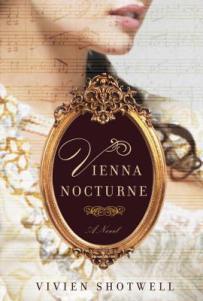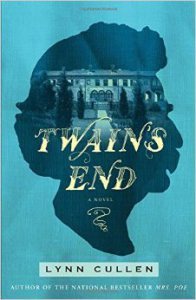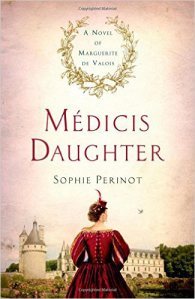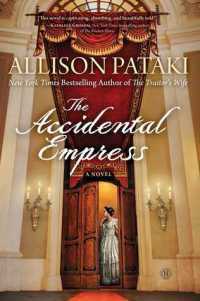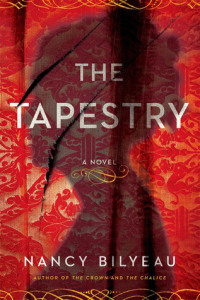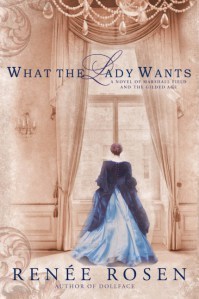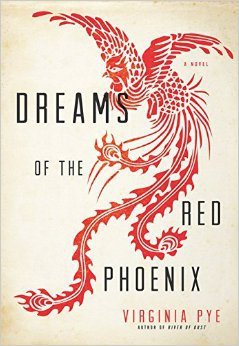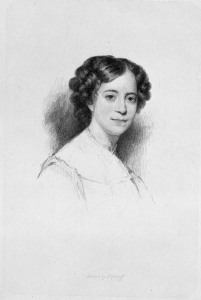Erika Robuck's Blog, page 8
December 30, 2015
Book Recommendation: VIENNA NOCTURNE
“It was the parlor and music room, filled with sun. She had never seen so much sun, never in Vienna. It came through the windows and sparked the dust on the ceramic shepherdesses on the mantelpiece. Even the big, heavy flowers in their vases seem to strain again for sun and belie their state of suspended dying. She caught herself at the doorway, remembering her thinness, her ashen skin, her mussed hair, the peacocks. She could not recall when last she had washed. The room billowed with music and sunlight. She could almost lean against it.//Mozart glanced at her with a calm smile, as if she were a rare and nocturnal animal he had coaxed to the edge of a meadow. He seemed as if in a meditation, as one deeply caught up, in this music which he did not write down, or read from, but tossed into the air like unstrung beads…” Vivien Shotwell, VIENNA NOCTURNE
Publisher Synopsis:
In the tradition of Paula McLain’s The Paris Wife and Laura Moriarty’s The Chaperone comes a sweeping historical love story and a portrait of an age. Vienna Nocturne is a deeply moving debut novel that brings to life two extraordinary figures—a thirty-year-old Wolfgang Amadeus Mozart and a young English soprano, Anna Storace, who was his muse—in prose as spirited, timeless, and touching as Mozart’s greatest compositions.
In late-eighteenth-century London, a young girl takes her first singing lessons with a mysterious castrato in exile. Her life is forever changed. Having learned everything he can teach her, Anna leaves behind all the security and familiarity of home and journeys to Naples and Venice to struggle and triumph in Italy’s greatest opera houses. Only sixteen, she finds herself in an intoxicating world of theaters, nobility, and vice, overwhelmed by her newfound freedom and fame. Her first bitter experience of love and heartbreak inevitably follows.
Within a few years, Anna is invited to sing in Vienna, the City of Music, by the emperor himself. There, in a teasing game of theft and play, Anna first meets Mozart, a young virtuoso pianist and striving, prodigiously talented composer. They are matched in intellect and talent, and an immediate and undeniable charge occurs between the two, despite both being married to others.
As her star rises in Vienna and her personal life deteriorates, Anna experiences an ultimate crisis. During this trying time, her only light is Mozart: his energy, his determination for her, and his art. She, in turn, becomes his hope and inspiration, and his joy, as he writes for her some of his most exquisite and enduring arias—music that will live on as his masterworks.
Rich in historical detail and beautifully wrought by Vivien Shotwell, an author who is herself an opera singer, Vienna Nocturne is a dramatic tour de force of a woman’s struggle to find love and fame in an eighteenth-century world that controls and limits her at every turn.
My Recommendation:
Smitten from the first chapters, I consumed VIENNA NOCTURNE over three consecutive nights in great, greedy gulps. Anna Storace is a charming, beguiling, and flawed protagonist. Her part in every scene commands the attention the woman herself must have earned on the great stages of Venice, Vienna, and London. Even in her darkest times, Anna is a light because of the vibrant intensity of her spirit, talent, and passion.
In addition to a highly readable story, the writing, itself, is worthy of note–especially descriptions of music. The fact that each chapter is titled is an unexpected pleasure, and one I don’t often see. It is as if each section is a little world unto itself–a small scene in a grand opera–and it is a pleasure to seek the meaning in the titles, deepening the themes of the novel with their inclusion.
Fans of historical fiction will adore the tragic and beautiful VIENNA NOCTURNE. Vivien Shotwell is a debut novelist of enormous talent, and I eagerly look forward to her next book.
December 29, 2015
Book Recommendation: THE EDGE OF LOST
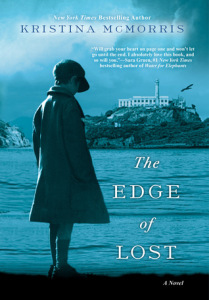
“It’s fascinating, really, when you think about it. How a person can slip into a new life as one would a new pair of shoes. At first there’s a keen awareness of the fit: a stiffness at the heel, the binding of the width, the curve pressed to the arch. But with time and enough steps, the feel becomes so natural you almost forget you’re wearing them at all.” Kristina McMorris, THE EDGE OF LOST
Publisher Synopsis:
From New York Times bestselling author Kristina McMorris comes an ambitious and heartrending story of immigrants, deception, and second chances.
On a cold night in October 1937, searchlights cut through the darkness around Alcatraz. A prison guard’s only daughter–one of the youngest civilians who lives on the island–has gone missing. Tending the warden’s greenhouse, convicted bank robber Tommy Capello waits anxiously. Only he knows the truth about the little girl’s whereabouts, and that both of their lives depend on the search’s outcome.
Almost two decades earlier and thousands of miles away, a young boy named Shanley Keagan ekes out a living as an aspiring vaudevillian in Dublin pubs. Talented and shrewd, Shan dreams of shedding his dingy existence and finding his real father in America. The chance finally comes to cross the Atlantic, but when tragedy strikes, Shan must summon all his ingenuity to forge a new life in a volatile and foreign world.
Skillfully weaving these two stories, Kristina McMorris delivers a compelling novel that moves from Ireland to New York to San Francisco Bay. As her finely crafted characters discover the true nature of loyalty, sacrifice, and betrayal, they are forced to confront the lies we tell–and believe–in order to survive.
My Recommendation:
I am a long-time fan of the novels of Kristina McMorris. She is one of those writers whose books manage to get better and better, and her latest, THE EDGE OF LOST, is no exception.
Intricately plotted in a series of vividly rendered settings from Ireland, to New York, to Alcatraz, THE EDGE OF LOST is an addictive read with a sympathetic and memorable protagonist. Each period and location is represented so true to life, the book unfolds like a film in the reader’s mind.
There are many surprises in the book, especially the moving scene that explains the gorgeous cover. Fans of period novels and novels of suspense will be captivated by THE EDGE OF LOST. I give it my highest recommendation.
Have you toured Alcatraz? Did you know that the island where some of the most notorious criminals in history were imprisoned had civilian residents?
December 27, 2015
Book Recommendation: THE NIGHTINGALE
“Isabelle reached out for the old woman’s hands. There were so many terrible aspects to what their lives now were, but there was this, too: friendships forged in fire that had proven to be as strong as iron.” Kristin Hannah, THE NIGHTINGALE
Publisher Synopsis:
In love we find out who we want to be.
In war we find out who we are.
FRANCE, 1939
In the quiet village of Carriveau, Vianne Mauriac says goodbye to her husband, Antoine, as he heads for the Front. She doesn’t believe that the Nazis will invade France … but invade they do, in droves of marching soldiers, in caravans of trucks and tanks, in planes that fill the skies and drop bombs upon the innocent. When a German captain requisitions Vianne’s home, she and her daughter must live with the enemy or lose everything. Without food or money or hope, as danger escalates all around them, she is forced to make one impossible choice after another to keep her family alive.
Vianne’s sister, Isabelle, is a rebellious eighteen-year-old girl, searching for purpose with all the reckless passion of youth. While thousands of Parisians march into the unknown terrors of war, she meets Gäetan, a partisan who believes the French can fight the Nazis from within France, and she falls in love as only the young can … completely. But when he betrays her, Isabelle joins the Resistance and never looks back, risking her life time and again to save others.
With courage, grace and powerful insight, bestselling author Kristin Hannah captures the epic panorama of WWII and illuminates an intimate part of history seldom seen: the women’s war. The Nightingale tells the stories of two sisters, separated by years and experience, by ideals, passion and circumstance, each embarking on her own dangerous path toward survival, love, and freedom in German-occupied, war-torn France–a heartbreakingly beautiful novel that celebrates the resilience of the human spirit and the durability of women. It is a novel for everyone, a novel for a lifetime.
My Recommendation:
Since its release in February, I have never had a book recommended to me as many times as THE NIGHTINGALE. Blurb requests and my own writing deadlines kept me from reading it. Then I read ALL THE LIGHT WE CANNOT SEE, and felt that it was such a perfect and heartrending book I needed a break from novels about WWII. When I read that THE NIGHTINGALE had sold over one million copies, I knew I had to get started. I’m so glad I did.
This is less a novel about romantic love and more a tale of familial love–sisters, fathers and daughters, mothers and children–and the sacrifices family members are willing to make and endure for their flesh and blood. It is the story of how two women are held to the fire–how their courage brings about great change in each of them. The reader will wonder over and over, “What would I do in this situation?” “Would I have the courage, the gall, the audacity, the love to do this?” The answers are not always clear or easy, but that’s what makes THE NIGHTINGALE so compelling.
There are many surprises along the way, and the book is heartbreaking, but it is worth it. THE NIGHTINGALE lived up to and surpassed every recommendation I received, and I pass along that recommendation to you.
Have you read the book? Have you read any others by Kristin Hannah? What would you recommend as a follow up?


December 21, 2015
Review: THE SONG OF HARTGROVE HALL
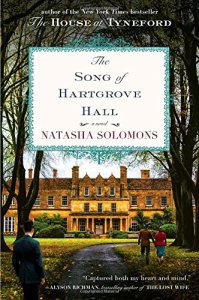
Publisher Synopsis:
It’s a terrible thing to covet your brother’s girl…
New Year’s Eve, Dorset, England, 1946. Candles flicker, a gramophone scratches out a tune as guests dance and sip champagne— for one night Hartgrove Hall relives better days. Harry Fox-Talbot and his brothers have returned from World War II determined to save their once grand home from ruin. But the arrival of beautiful Jewish wartime singer Edie Rose tangles the threads of love and duty, and leads to a devastating betrayal.
Fifty years later, now a celebrated composer, Fox reels from the death of his adored wife, Edie. Until his connection with his four-year old grandson – a music prodigy – propels him back into life, and ultimately to confront his past. An enthralling novel about love and treachery, joy after grief, and a man forced to ask: is it ever too late to seek forgiveness?
My Recommendation:
Rarely does one find such a wholly satisfying arrangement in a novel as author Natasha Solomons presents in THE SONG OF HARTGROVE HALL. The Downton Abbey-esque settings, the distinct and memorable characters, and the vivid and touching emotions work in matchless harmony. The following quotes reflect the themes of love, music, and grief, which the reader will experience in full and absorbing array on its pages.
Love:
“I want her to understand that I’ve written this part for her. I know what her voice can do, how best to release that sound. She’s been fastened into those silly patriotic songs like cheap costumes, and at last she’s dressed in silk. I see in her face that she knows it too, and as she sings, a pure iridescent sound that reverberates through me, I catch her eye, wide with surprise. Listen to what you can do, I tell her through the music. Listen. You are the nightingale but not the one they think.”
Music:
“[He] stood motionless in the middle of the room. He listened with his hands held out before him, fingers spread as though catching notes like snowflakes. The hall glowed with sound. It poured down upon us from the gallery in reds and gold and yellow.”
Grief:
“Sometimes for hours or even days I’d function perfectly well. Then, something would trigger it. The knowledge of an anniversary–‘Today a year ago was the last time we walked around the garden together’–…Then in the sudden silence, the grief would catch me and bear me off on grey tides. I was helpless until it receded once more and despair dwindled into ordinary unhappiness.”
For a chance to win a copy of one of the finest novels I’ve read this year, comment below about your favorite British set novel, television series, or movie by Saturday, December 26th, 1 PM ET, and please share on social media. (US residents only.)


December 18, 2015
Six Historical Fiction Recommendations
While there are still shopping days left this holiday season, I want to recommend six outstanding historical novels I had the pleasure of blurbing this year. (For those of you unfamiliar with the term, ‘blurbing’ means providing endorsement quotes for other authors’ books.) It is a great joy to receive many blurb requests, though time often prevents me from agreeing to read for possible endorsement. Also, I only blurb books that make me wild with enthusiasm.
My schedule has kept me from posting about these books upon their releases, so I’m offering this list (with my blurbs) as a round-up of titles (in no particular order), perfect for the historical fiction lover in your life (even if it’s you!)
TWAIN’S END, Lynn Cullen
“The breadth of research and faithfulness to the subjects is evident in TWAIN’S END. With clarity and honesty, Cullen resurrects one of America’s most complicated and well-known writers and his intimates in vivid, fascinating, and sometimes shocking ways. TWAIN’S END is more than a study in character; it is a cautionary tale of the spoils of fame and power, and those intoxicated by it. Captivating.”
MEDICI’S DAUGHTER, Sophie Perinot
“Rising above the chorus of historical drama is Perinot’s epic tale of the fascinating, lascivious, ruthless House of Valois, as told through the eyes of the complicated and intelligent Margaret. Burdened by her unscrupulous family and desperate for meaningful relationships, Margaret is forced to navigate her own path in sixteenth century France. Amid wars of nation and heart, MEDICIS DAUGHTER brilliantly demonstrates how one unique woman beats staggering odds to find the strength and power that is her birthright.”
THE ACCIDENTAL EMPRESS, Allison Pataki
“With her meticulous attention to historical detail and powerfully entertaining storytelling skills, Allison Pataki is a force in historical fiction. Set amid the grand landscapes of the Austro-Hungarian Empire and the wilds of the human heart, THE ACCIDENTAL EMPRESS is an epic tale of honor, power, and love. Breathtaking!”
THE TAPESTRY, Nancy Bilyeau
“In spite of murderous plots, volatile kings, and a divided heart, Joanna Stafford manages to stay true to her noble character. Fans of Ken Follett will devour Nancy Bilyeau’s novel of political treachery and courageous love, set amid the endlessly fascinating Tudor landscape.”
MADEMOISELLE CHANEL, C W Gortner
“In a novel as brilliant and complicated as Coco Chanel herself, C W Gortner’s prose is so electric and luminous it could be a film, and not just any film, but one of the grandest biopics of our time. Divine!”
WHAT THE LADY WANTS, Renee Rosen
“Rosen skillfully charms, fascinates, frustrates, and moves her readers in this turn of the century tale. Set on an epic historical stage, WHAT THE LADY WANTS contains all of the hedonism, decadence, success, and tragedy of the great American novel.”
~Happy Gifting & Reading!~
November 3, 2015
Interview: Virginia Pye
Virginia Pye’s second novel, Dreams of the Red Phoenix, has been called by author Gish Jen, “Gripping, convincing, and heartbreaking…a real page-turner and thought-provoker—wonderful.” Kirkus writes: “There’s a comparison to Ballard’s Empire of the Sun, but this unflinching look…shares truth in its own way.” Her debut novel, River of Dust, (which I loved!) was chosen as an Indie Next Pick and a 2014 Virginia Literary Awards Finalist. Virginia has published award-winning short stories in literary magazines, and her essays and interviews have appeared in The New York Times Opinionator, The Rumpus, Huffington Post, and forthcoming in Literary Hub. She holds an MFA from Sarah Lawrence and taught writing at New York University and the University of Pennsylvania. Since graduating from college, she has lived in Cambridge, Hartford, New York, Philadelphia, Richmond and now, coming full circle, Cambridge again.
Congratulations on the publication of your new novel, Dreams of the Red Phoenix. You have now published two novels set in the past in China. I’m curious why you chose that setting and earlier time?
I wrote a number of contemporary novels set in cities where I had lived and knew well, but it took writing about a distant place and time to really ignite my imagination. I found that by having to fully create a place, based on some research and a lot of envisioning, I was more likely to create a believable atmosphere. I could stake out my own territory in time and place—and only historians specializing in China can challenge me, though so far, they seem to say that I got it right.
So do you think of yourself as a historical novelist?
I’ve always thought of myself as a literary novelist who happens to have written two books set in an earlier time, but it’s probably time to revise that perspective. My understanding of the genre of historical fiction is a bit skewed and outdated. It used to be that historical novels were about real figures in history—kings and dukes and such—and often involved pomp or military maneuvers, but now historical fiction tells all sorts of stories from every strata of society. I’m happy to embrace the label now, although the novel I’ve just completed comes all the way up to 1990.
Tell us about your next manuscript. What have you been working on?
I’ve just sent my agent the third and final novel in this loosely based series about an American family in China. The first, River of Dust, which came out in 2013, was about an American missionary couple in northwest China in 1910. At the start of the story, their toddler child is kidnapped by Mongolian bandits, sending the parents on an odyssey into a desolate and dangerous countryside that untimely changes who they are and what they believe.
The second book, Dreams of the Red Phoenix, which is being published in October, 2015, is also about Americans in north China, but this time during the violent summer of 1937, just as the Japanese attack and Chinese political and military factions are fighting for control. My protagonist is a mother of a teenage boy, and shortly before the start of the story her husband has gone missing and is presumed dead. As the Japanese attack, she realizes she must offer her skills as a nurse to help the Chinese Communists. Quite quickly she becomes convinced of their cause and embroiled in the struggle. This leads her into all sorts of adventures, including a visit to a Red Army camp. The question that hovers over the book is whether she and her son will make it out of China alive.
The third and final book follows the next generation of Americans as they wrestle with their family’s missionary past. The daughter winds up involved in a student take over of Harvard protesting the Vietnam War, while her younger brother finds himself at the Fall of Saigon—two drastically different responses to their family’s complex relationship to Asia. The third book begins and ends in North China, in the same rural setting as the two previous novels.
Do you hope to visit China again soon?
I do! I’d love to go to Beijing this time and then travel out into the countryside to see my grandfather’s grave. I never knew him because he died when my father was only five, but I did know my grandmother when I was young. My grandfather was the inspiration for River of Dust, while my grandmother was the inspiration for Dreams of the Red Phoenix. To pay tribute to them, I would like to go there and see if the landscape is anything like what I imagined, although the region where my father was born and raised has changed drastically over the past century. It is now one of the most polluted places on earth. Not a great recommendation for a vacation spot, but when on a mission, writers aren’t always looking for what anyone else finds interesting. I would feel lucky to be there and soak up whatever hints of the past I could find.
Congratulations, Virginia! I can’t wait to read Dreams of the Red Phoenix.


October 11, 2015
Book Recommendation: BIG MAGIC
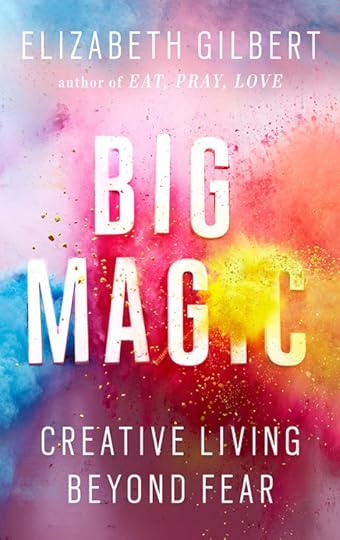
“I happen to believe we are all walking repositories of buried treasure. I believe this is one of the oldest and most generous tricks the universe plays on us human beings, both for its own amusement and for ours: The universe buries strange jewels deep within us all, and then stands back to see if we can find them.” Elizabeth Gilbert, BIG MAGIC
Publisher Synopsis:
From the worldwide bestselling author of Eat Pray Love: the path to the vibrant, fulfilling life you’ve dreamed of.
Readers of all ages and walks of life have drawn inspiration and empowerment from Elizabeth Gilbert’s books for years. Now this beloved author digs deep into her own generative process to share her wisdom and unique perspective about creativity. With profound empathy and radiant generosity, she offers potent insights into the mysterious nature of inspiration. She asks us to embrace our curiosity and let go of needless suffering. She shows us how to tackle what we most love, and how to face down what we most fear. She discusses the attitudes, approaches, and habits we need in order to live our most creative lives. Balancing between soulful spirituality and cheerful pragmatism, Gilbert encourages us to uncover the “strange jewels” that are hidden within each of us. Whether we are looking to write a book, make art, find new ways to address challenges in our work, embark on a dream long deferred, or simply infuse our everyday lives with more mindfulness and passion, Big Magic cracks open a world of wonder and joy.
My Recommendation:
I have been a long-time fan of the writing of Elizabeth Gilbert, and only recently, have stumbled upon her joy-filled, wonder-full, awe-some Facebook and Instagram accounts. They are a well for anyone involved in creative pursuits; no, for all of us–for we are all creative and curious beings.
Gilbert’s joy is unabashed. She’s radical in her flagrant wielding of it. Her joy is the antidote to the abundance of trouble-making, politicizing, snarky, angry babel that infests social media. Gilbert addresses this joy in the opening pages of BIG MAGIC by quoting poet Jack Gilbert (no relation), so the reader knows what to expect from the onset:
“We must risk delight…We must have the stubbornness to accept our gladness in the ruthless furnace of this world.”
Amen.
I’ve lately seen a sharp uptick in the amount of posts on Facebook and Twitter addressing divisive issues. I’ve been tempted to respond to these posts, retweet them, create my own, but often this leads me to a darkness that just doesn’t fit…me.
Does the need to share controversy arise from ego? (Do a certain amount of likes give me satisfaction?) Does it arise from a fear that I’m not doing my part? (We must not be silent.) Or is it more sinister? (Zuckerberg is playing with my emotions using data and share-metrics, and I am falling right into his trap.) I don’t know what it is, but increasingly, I find myself turning off social media (or retreating into the happy pictures of Instagram) in search of time off from Facebook and Twitter philosophers and politicians. More so, I find myself going OUTSIDE which has done wonders for my emotional and physical well-being, but more on that in another post.
All of this may seem like a digression from the purpose of this post; it is not. Read BIG MAGIC.
Liz Gilbert is a light-bearer. She brings energy and wonder and curiosity and gratitude back into fashion. She reminds the reader of simple things we know, or more complicated things we might not have understood, but all of it translates into a manifesto for embracing the joy of life, taking yourself and your endeavors lightly, and boldly going forth in the world bearing light.
Skeptics might grow uncomfortable with Gilbert’s talk of faith, of ideas as entities floating around looking for ways to be made manifest, and the divine cooperation the universe seeks with us, but read it anyway. Read it because it will not hurt you or make you angry. It will not make you lose sleep worrying over the state of the world, or whether you should share that political post, or if anything is worth fighting for any more.
Some things must be taken seriously. Some things must be shared and protested and addressed, but all of that seems to take care of itself, in excess. Give yourself the gift of BIG MAGIC to take care of the other part that needs tending: the glorious side of humanity when it engages fearlessly in the wonder of creation.


October 6, 2015
Book Review: THE SECRET CHORD
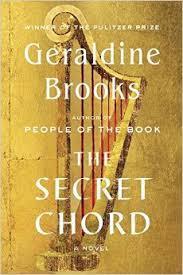
“I have had great length of days, and been many things. A reluctant warrior. A servant. A counselor. Sometimes, perhaps, his friend. And this, also, have I been: a hollow reed through which the breath of truth sounded its discordant notes.
Words. Words upon the wind. What will endure, perhaps, is what I have written. If so, it is enough.” Geraldine Brooks, The Secret Chord
Publisher Synopsis:
With more than two million copies of her novels sold, New York Times bestselling author Geraldine Brooks has achieved both popular and critical acclaim. Now, Brooks takes on one of literature’s richest and most enigmatic figures: a man who shimmers between history and legend. Peeling away the myth to bring David to life in Second Iron Age Israel, Brooks traces the arc of his journey from obscurity to fame, from shepherd to soldier, from hero to traitor, from beloved king to murderous despot and into his remorseful and diminished dotage.
The Secret Chord provides new context for some of the best-known episodes of David’s life while also focusing on others, even more remarkable and emotionally intense, that have been neglected. We see David through the eyes of those who love him or fear him—from the prophet Natan, voice of his conscience, to his wives Mikal, Avigail, and Batsheva, and finally to Solomon, the late-born son who redeems his Lear-like old age. Brooks has an uncanny ability to hear and transform characters from history, and this beautifully written, unvarnished saga of faith, desire, family, ambition, betrayal, and power will enthrall her many fans.
My Recommendation:
Geraldine Brooks is a rare writer who is able to employ both gorgeous prose and spellbinding storytelling. Though some scenes in THE SECRET CHORD moved me to revulsion, or even tears, I could not look away. Many passages in my copy of the book are underlined for their potency and elegance. Brooks writes most lyrically when she describes David’s musical talent–arguably his most redeeming quality.
“It’s a kind of sorcery, a possession of body and spirit. Yet a wholesome one. And there is one chord, one perfect assembly of notes that no other hand can play. The sound of it–pure, rinsing sound, void, so that your spirit seems to rush in to fill the space between the notes.”
In THE SECRET CHORD, King David’s story is told through a reliable narrator, which allows the reader to see a legendary ruler in all his unvarnished capacities. If we had heard David through his own voice, there may have been excuses, justifications, or omissions from his brutal history. Seeing David through a servant or advisor gives the entire picture, and that portrait–for all its beauty and glory–is blood-stained, torn, and decaying, even as the King makes his ascent.
Fans of WOLF HALL will be enthralled by this unflinching depiction of biblical royalty. The loyal and humble narrator, who helps the reader understand a time that feels both far removed and close to home, enchants. I give THE SECRET CHORD my highest recommendation.
I have one copy of THE SECRET CHORD to give away. Please comment below with your favorite work by Geraldine Brooks, or your favorite work of historical, epic, family drama by Monday, October 12th at 9 PM ET. (US only, please.) Please share on social media, and good luck!


September 22, 2015
Book Recommendation: LITTLE WOMAN IN BLUE
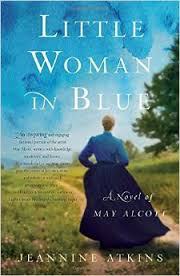
“Clouds drifted below her. Mist rose over cliffs and caverns and a faraway lake. Yesterday’s rainfall still splashed over rocks and paths. She could now see that one wrong step could have ended her life…Her feet were cold in her boots. Her neck felt chilled where it was touched by her hair that hadn’t yet dried. But even the ache in her legs reminded her that she’d said she could make it here, where she could see the country where she’d be going. One valley in Italy looked small enough to hold in her hand.” Jeannine Atkins, LITTLE WOMAN IN BLUE: A NOVEL OF MAY ALCOTT
Publisher Synopsis
May Alcott spends her days sewing blue shirts for Union soldiers, but she dreams of painting a masterpiece―which many say is impossible for a woman―and of finding love, too. When she reads her sister’s wildly popular novel, Little Women, she is stung by Louisa’s portrayal of her as “Amy,” the youngest of four sisters who trades her desire to succeed as an artist for the joys of hearth and home. Determined to prove her talent, May makes plans to move far from Massachusetts and make a life for herself with room for both watercolors and a wedding dress. Can she succeed? And if she does, what price will she have to pay?
Based on May Alcott’s letters and diaries, as well as memoirs written by her neighbors, Little Woman in Blue puts May at the center of the story she might have told about sisterhood and rivalry in an extraordinary family.
My Recommendation:
Please refrain from throwing pencils at me, but I despise Little Women. I think it is silly, saccharine drivel. Because of this, I was reluctant to pick up LITTLE WOMAN IN BLUE, but I’m so glad I did. Atkins delivers a marvelous reimagining of the very human story behind one of America’s most beloved novels.
Artists are often jealous by nature. They wish heartily for one another’s success when they’re struggling, and then covet it when another achieves a certain level of status. Equal parts self-doubt and ego, artists experience an incessant war within the psyche. Atkins fully animates these competitions and struggles, giving an unflinching glimpse into the tensions of a being a woman in the nineteenth century, in a working class family, in a nation at war. LITTLE WOMAN IN BLUE portrays these conflicts of sister and world with just the right touch–never burdening the reader with too much hopelessness, while creating intrigue and bringing the well-known writers and thinkers of Concord, Massachusetts to vivid life.
Throughout the reading of the novel I was often tempted to look online for May’s full life story, but I’m happy that I waited until I finished. LITTLE WOMAN IN BLUE is the Little Women I have always wanted, and for those who enjoy literature of this time period, and complicated female protagonists, I highly recommend it.
http://www.jeannineatkins.com/


September 21, 2015
Giveaway: THE HOUSE OF HAWTHORNE audio
Sophia Peabody Hawthorne was born on this day in 1809. She and her husband Nathaniel Hawthorne had a gift in their love, which seemed to grow stronger each year. Even a decade into their marriage, Sophia wrote to her mother that she existed in a “blissful kind of confusion.”
In the common journal the Hawthornes kept in their early marriage, when they lived at the Old Manse in Concord, MA, Sophia wrote this:
“[T]o be drawn forever into lower deeps, seeing only space beyond space, this is the true enchantment, the endless communion, and this is his–this is my mystery.”
To celebrate Sophia’s birthday, and if you would like to learn more about their unique love story and creative lives, an audio version of THE HOUSE OF HAWTHORNE is up for grabs on Goodreads:
Enter to win, and please help spread the word! The giveaway ends next Monday, September 28th.



